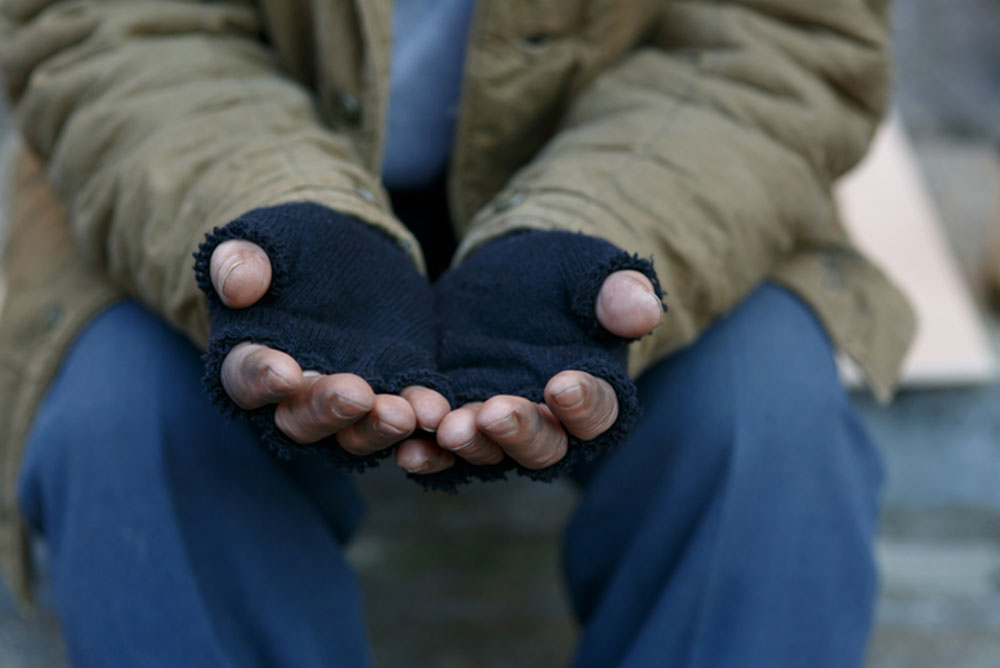
iStock
NARCISSISM, INCREASINGLY hostile partisan politics, mass shootings—all have been blamed on what President Obama called the “empathy deficit.” But while researchers are exploring ways to increase an individual’s empathy, some point to its downsides.
Yale researcher Paul Bloom—in a debate entitled “Empathy, is it all it’s cracked up to be?” at the 2015 Aspen Ideas Festival —focused first on misguided empathy. For example, giving money to child beggars in India in fact supports “a huge network of child abuse” (parents maiming their children to become more successful beggars).
But gifts to Oxfam, which help those children more, don’t provide the warm feelings engendered by performing empathetic acts, said Bloom. In fact, having greater empathy has no correlation with how generous you are, as defined by charitable giving.
There’s also the familiar observation that empathy among “helping professionals,” such as doctors who put themselves in their patients’ shoes, can make them bad at what they do. If I’m anxious, I don’t want the doctor feeling anxious, too, because empathy can impair the ability to act, he said.
And, empathy can be exploited. “When I think about empathy, I think of war,” said Bloom, such as the tales of Iraqis suffering under Saddam Hussein that swayed Americans to support the U.S. invasion and ongoing war.
Empathy can provoke reactions of anger and rage, even violence, he noted but these emotions can have a positive role in motivating leaders, like Martin Luther King and Nelson Mandela, to fight injustice and to sustain high levels of commitment over long, difficult years.
University of Wisconsin psychologist Richard Davidson, Bloom’s debate opponent, agreed. Davidson, creator of the Center for Investigating Healthy Minds and co-author of The Kindness Curriculum for use in early education, spent years studying meditation with the Dalai Lama with whom he became close friends. Davidson has documented changes in brain waves that occur with practicing compassion and kindness, which in turn contribute to general feelings of well-being.
Davidson discussed the lifetime of practice that has led the Dalai Lama to love everyone —which Bloom countered with his preference for more rationally based behavior. For example, to the question “who would you die for?” he would choose his own children first, and at the same time acknowledge that other children matter, too.
Empathy is “a parochial, narrow-minded” emotion, Bloom said. Putting oneself in another’s shoes activates mirror neurons: watching someone burn their finger makes the observer feel actual pain—albeit less pain if the hand is a different color from theirs or belongs to a soccer player for the opposing team.
Bigoted empathy comes from entrenched beliefs, for example, that black people feel less pain than others—an assumption shared even by many black people—related to beliefs about social status and hardship. People considered more privileged are widely perceived to feel greater pain. As a result, minorities, primarily blacks and Hispanics, receive inadequate pain medication, writes Jason Silverstein on Slate.com.
Also, people avoid situations that might cost them significant time or money, according to Daryl Cameron and others at the University of Iowa. Subjects who were told they would be asked to make a donation felt more empathy for a single child; conversely, when there was no financial cost, subjects could feel more empathy for larger numbers of children.
Motivation is another variable. People in more powerful positions have less incentive to interact with other people and thus less empathy. And when researchers told people that empathy was a skill that could be improved—rather than a fixed personality trait—they made a greater effort to feel empathy for racial groups other than their own.
Empathy begins at birth with “attunement” of the mother and infant: lacking this early emotional connection can lead to narcissism or psychopathy—considered “empathy deficit disorders.”
Psychopaths “tend to be very good at reading other people’s emotions while remaining emotionally unmoved themselves,” according to a Guardian article on the definitions of empathy. In contrast, many on the autism spectrum are poor at reading nonverbal emotions but, once made aware of these, can share them intensely.
Even for narcissists, though, empathy can be restrained or expanded by choice. In research by psychologist Erica Hepper at the University of Surrey, those “high narcissists” told to put themselves “in another person’s shoes”—called cognitive perspective taking—reported more empathy than others for a domestic violence victim portrayed in a video. When asked to take the perspective of a woman describing her recent breakup on tape, the heart rates of the high narcissists increased to match those in the control (low-narcissism) group.
“Our findings are promising in suggesting that even relatively anti-social members of society can be empathic,” said Hepper, who believes in the importance of empathy for everyone in helping to “form and maintain close relationships.”
Perspective-taking can reduce bigotry in empathy. Silverstein refers to a study on participants who were told, “try to imagine how your patient feels about his or her pain and how this pain is affecting his or her life,” which reduced treatment bias by 55%.
An “empathy gap” can exist when one or more people are believed to be “the other” or worse, “the enemy”—an explanation for the actions of mass shooters, suicide bombers and those who engage in political violence, some of whom are empathetic in other aspects of their lives.
Psychologists have developed ways to assess such prejudices, for example, the “implicit association test”—sometimes referred to as the “racist test.” “The idea is to intervene at the psychological level,” says M.I.T. cognitive neuroscientist and conflict specialist Emile Bruneau, to “see if doing that improves the success rate of various integration programs.”
—Mary Carpenter
Read more of Mary Carpenter’s well-being posts.

Fascinating article. Thanks.